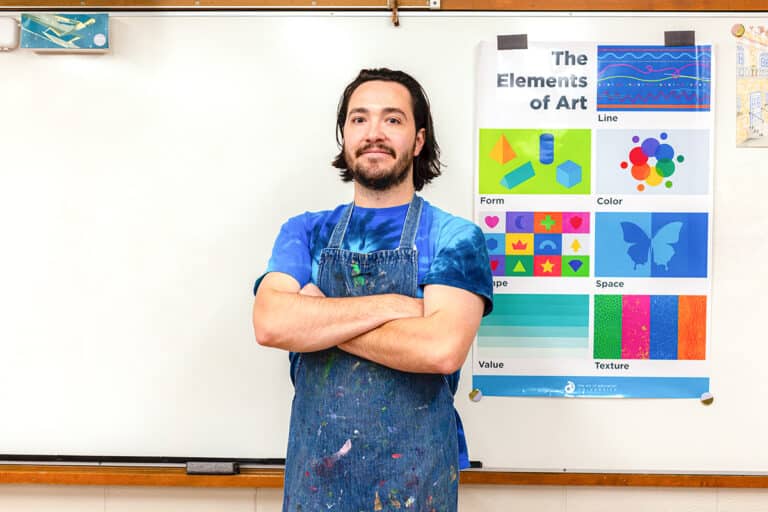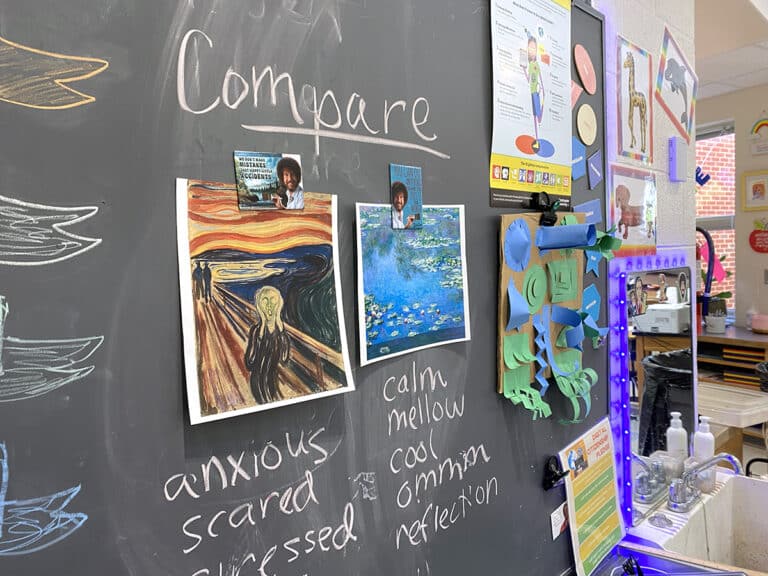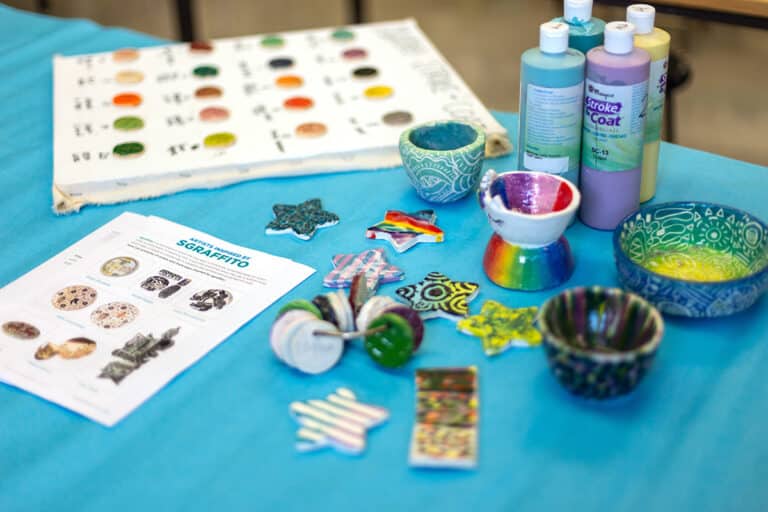As teachers, we are charitable and giving to a fault. Our altruistic genes are why we do what we do; It surely isn’t for the money or fame. As giving people, we often have a hard time saying no. Add to this the creative, “jump and learn to fly on the way down” temperament of most art teachers, and it’s easy to get over-extended. We’re the eager early adopters, ready to volunteer for some new educational initiative, pilot that new software program, and make those extra posters.
When we take a rare break and look up, we’re completely overwhelmed.
A friend of mine recently brought up this little nugget, “For everything we do, there’s something we’re not doing.” I’d like to offer up an amendment to this advice, “For everything we do, we do all the other stuff a little less successfully.” It’s easy to feel a mile wide and an inch deep when we keep saying yes to new, exciting opportunities. While I logically know this, emotionally, I think I’m going to be the one mortal to extract more time out of the day.

If you are the type of teacher that says yes to everything… I’m right there with you. If you’ve figured out how to gracefully and quickly say no… I want to be right there with you.
The Pros and Cons of Always Saying Yes
The Pros
Although I’m currently working to clear some obligations off my plate, I don’t mean to say that they don’t have upsides. I’ve said yes to every reasonable opportunity over the past two years and learned so much in the process. I could never have imagined that saying yes to a few STEAM-related activities would have made me a burgeoning expert in 3D printing, coding, Makerspaces, and STEAM education.

In addition, presenting at conferences (even when it’s a stretch for me to feel and act like an expert) has led me to meet some amazing people and reach a level of deep introspection.

Then there are the family commitments. I’ve been a Sunday school teacher for my kids, a flag football coach, a scout leader, and F.I.R.S.T. LEGO League coach. All of these commitments have spread me thin, but they’ve also cross-pollinated and benefitted my teaching. For example, without LEGO League coaching, I don’t think I would be as strong of an advocate for STEAM education. Maybe you have some of these kinds of commitments too. But, maybe it’s all becoming too much.
The Cons
If you get to a point when you feel like you never have enough time to devote to your personal life or family, it’s time to start saying no. You feel the cons: your performance at work is suffering, you’re less creative and patient in the classroom, you’re tired, stressed, and sluggish. Something’s got to give. But what?
How to Say No

I’ve been listening to a number of podcasts on entertainment, comedy, leadership, and entrepreneurship lately (go figure). One of the common threads that keeps coming up is that a quick “no” is much more advantageous than a slow, drawn out, “maybe.” If it’s not possible, let the other party know and let them know quickly. That way, if there are some volunteer opportunities that you simply can’t take on, they have the time to find another person.
I’m realizing that I’m a yes person. It recently dawned on me that I was afraid that if I ever said no, I wouldn’t be asked for other opportunities down the road. I thought that once I said no, I was done for. But that simply isn’t the case. There’s too much work and too great a need for those sorts of activities to just dry up. So go ahead, say no. Your family and your students will thank you. You’ll be happier and healthier and more able to devote time to things you feel most strongly about. In fact, saying no feels great. I just did it today!
How do you find the balance between the new and exciting experiences that come from saying yes and the inevitable burnout of being overextended?
Do your involvements come in stages or are you more strategic in what you take on?
Magazine articles and podcasts are opinions of professional education contributors and do not necessarily represent the position of the Art of Education University (AOEU) or its academic offerings. Contributors use terms in the way they are most often talked about in the scope of their educational experiences.




